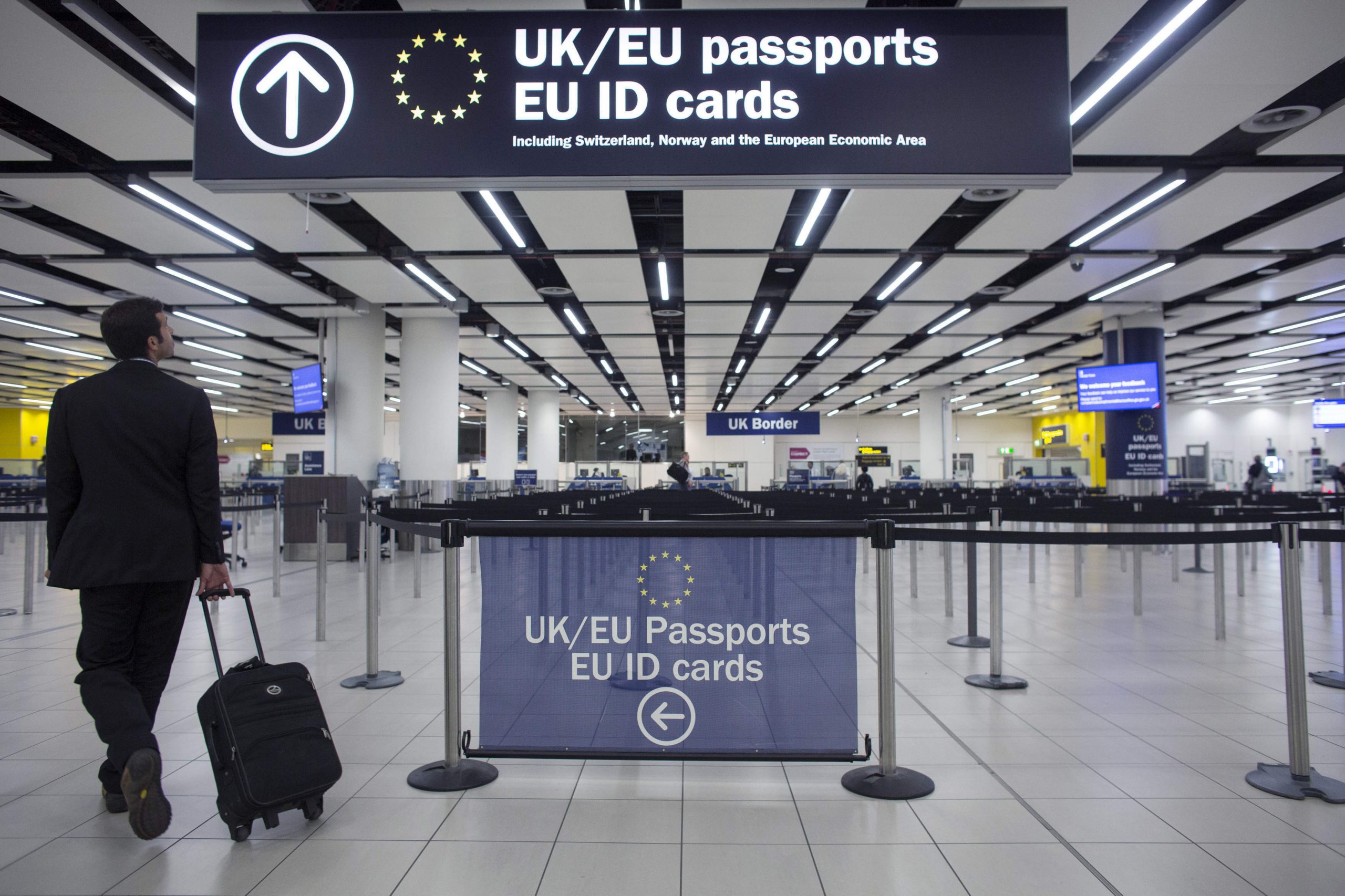
The UK may not have left the EU yet but Europeans are already leaving it. New figures from the ONS show that 117,000 EU citizens emigrated in 2016 (up 31,000 from 2015) – the highest level for six years. The exodus was most marked among eastern Europeans, with a fall in immigration from the EU8 countries to 48,000 (down 25,000) and a rise in emigration to 43,000 (up 16,000).
As a result, net migration has fallen to 248,000 (down 84,000), the lowest level since 2014. That’s still nearly more than double the Conservatives’ target of “tens of thousands a year” (reaffirmed in their election manifesto) but the trend is unmistakable. The number of international students, who Theresa May has refused to exclude from the target (despite cabinet pleas), fell by 32,000 to 136,000. And all this before the government has imposed new controls on free movement.
The causes of the UK’s unattractiveness are not hard to discern. The pound’s depreciation (which makes British wages less competitive), the spectre of Brexit (May has refused to guarantee EU citizens the right to remain) and a rise in hate crimes and xenophobia are likely to be the main deterrents. Ministers may publicly welcome the figures but many privately acknowledge that they come at a price. The OBR recently forecast that lower migration would cost £6bn a year by 2020-21. As well as reflecting weaker growth, reduced immigration is likely to reinforce it. Migrants pay far more in tax than they claim in benefits, with a net contribution of £7bn a year. An OBR study found that with zero net migration, public sector debt would rise to 145 per cent of GDP by 2062-63, while with high net migration it would fall to 73 per cent.
Brexit has in fact forced ministers to increasingly acknowledge an uncomfortable truth: Britain needs immigrants. Those who boasted during the referendum of their desire to reduce the number of newcomers have been forced to qualify their remarks. Brexit secretary David Davis, for instance, recently conceded that immigration woud not invariably fall after the UK leaves the EU. “I cannot imagine that the policy will be anything other than that which is in the national interest, which means that from time to time we’ll need more, from time to time we’ll need less migrants.”
Though Davis insisted that the government would eventually meet its “tens of thousands” target (a level not seen since 1997), he added: “The simple truth is that we have to manage this problem. You’ve got industry dependent on migrants. You’ve got social welfare, the national health service. You have to make sure they continue to work.”
As my colleague Julia Rampen has charted, Davis’s colleagues have inserted similar caveats. Andrea Leadsom, the Environment Secretary, who warned during the referendum that EU immigration could “overwhelm” Britain, has told farmers that she recognises “how important seasonal labour from the EU is to the everyday running of your businesses”. Others, such as the Health Secretary, Jeremy Hunt, the Business Secretary, Greg Clark, and the Communities Secretary, Sajid Javid, have issued similar guarantees to employers. Brexit is fuelling immigration nimbyism: “Fewer migrants, please, but not in my sector.”
Alongside the new immigration figures, GDP growth in the first quarter of 2017 was revised down to 0.2 per cent – the weakest performance since Q4 2012. In recent history, there has only been one reliable means of reducing net migration: a recession. Newcomers from the EU halved after the 2008 crash. Should the UK suffer the downturn that historic trends predict, it will need immigrants more than ever. Both the government and voters may only miss migrants when they’re gone.





